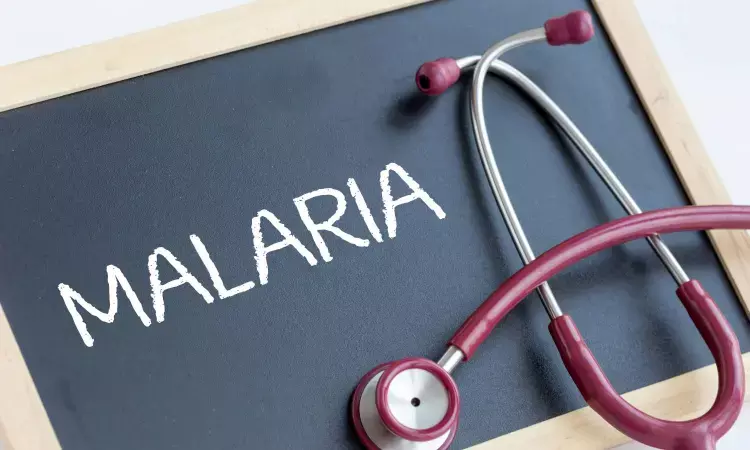- Home
- Medical news & Guidelines
- Anesthesiology
- Cardiology and CTVS
- Critical Care
- Dentistry
- Dermatology
- Diabetes and Endocrinology
- ENT
- Gastroenterology
- Medicine
- Nephrology
- Neurology
- Obstretics-Gynaecology
- Oncology
- Ophthalmology
- Orthopaedics
- Pediatrics-Neonatology
- Psychiatry
- Pulmonology
- Radiology
- Surgery
- Urology
- Laboratory Medicine
- Diet
- Nursing
- Paramedical
- Physiotherapy
- Health news
- Fact Check
- Bone Health Fact Check
- Brain Health Fact Check
- Cancer Related Fact Check
- Child Care Fact Check
- Dental and oral health fact check
- Diabetes and metabolic health fact check
- Diet and Nutrition Fact Check
- Eye and ENT Care Fact Check
- Fitness fact check
- Gut health fact check
- Heart health fact check
- Kidney health fact check
- Medical education fact check
- Men's health fact check
- Respiratory fact check
- Skin and hair care fact check
- Vaccine and Immunization fact check
- Women's health fact check
- AYUSH
- State News
- Andaman and Nicobar Islands
- Andhra Pradesh
- Arunachal Pradesh
- Assam
- Bihar
- Chandigarh
- Chattisgarh
- Dadra and Nagar Haveli
- Daman and Diu
- Delhi
- Goa
- Gujarat
- Haryana
- Himachal Pradesh
- Jammu & Kashmir
- Jharkhand
- Karnataka
- Kerala
- Ladakh
- Lakshadweep
- Madhya Pradesh
- Maharashtra
- Manipur
- Meghalaya
- Mizoram
- Nagaland
- Odisha
- Puducherry
- Punjab
- Rajasthan
- Sikkim
- Tamil Nadu
- Telangana
- Tripura
- Uttar Pradesh
- Uttrakhand
- West Bengal
- Medical Education
- Industry
Adjunctive rosiglitazone safe and well-tolerated for pediatric malaria: Study

A recent double-blind, placebo-controlled trial tested the efficacy of adjunctive rosiglitazone treatment alongside standard antimalarial care in Mozambican children with severe malaria. The findings were published in International Journal of Infectious Diseases.
The study comprised 180 children and examined if rosiglitazone, a medication commonly used in diabetes management, could impact the levels of circulating angiopoietin-2 (Angpt-2) and consequently improve the overall prognosis for severe malaria cases.
Children were administered either rosiglitazone or a placebo in addition to standard malaria care over a four-day period. The primary focus was on the rate of decline of Angpt-2 over 96 hours, with secondary outcomes encompassing the dynamics of angiopoietin-1 (Angpt-1), the Angpt-2/Angpt-1 ratio, parasite clearance kinetics, clinical outcomes, and safety measures.
The results revealed that children treated with rosiglitazone exhibited a steeper but non-significant decline in Angpt-2 levels during the initial 96 hours of hospitalization compared to those in the placebo group. A similar non-significant trend was observed for Angpt-1 and the Angpt-2/Angpt-1 ratio. Also, the adjunctive rosiglitazone treatment demonstrated safety and tolerability, with no significant differences in other secondary and safety outcomes between the two groups.
The findings underline the complexities of severe malaria and the need for continued research to explore alternative adjunctive therapies. This trial contributes significantly to the ongoing discourse on innovative approaches to severe malaria management. The exploration of rosiglitazone opens avenues for further investigations by emphasizing the importance of diverse strategies in addressing the complex challenges posed by severe malaria in pediatric populations.
Reference:
Varo, R., Crowley, V. M., Mucasse, H., Sitoe, A., Bramugy, J., Serghides, L., Weckman, A. M., Erice, C., Bila, R., Vitorino, P., Mucasse, C., Valente, M., Ajanovic, S., Balanza, N., Zhong, K., Derpsch, Y., Gladstone, M., Mayor, A., Bassat, Q., & Kain, K. C. (2023). Adjunctive rosiglitazone treatment for severe paediatric malaria: a randomized placebo-controlled trial in Mozambican children. In International Journal of Infectious Diseases. Elsevier BV. https://doi.org/10.1016/j.ijid.2023.11.031
Neuroscience Masters graduate
Jacinthlyn Sylvia, a Neuroscience Master's graduate from Chennai has worked extensively in deciphering the neurobiology of cognition and motor control in aging. She also has spread-out exposure to Neurosurgery from her Bachelor’s. She is currently involved in active Neuro-Oncology research. She is an upcoming neuroscientist with a fiery passion for writing. Her news cover at Medical Dialogues feature recent discoveries and updates from the healthcare and biomedical research fields. She can be reached at editorial@medicaldialogues.in
Dr Kamal Kant Kohli-MBBS, DTCD- a chest specialist with more than 30 years of practice and a flair for writing clinical articles, Dr Kamal Kant Kohli joined Medical Dialogues as a Chief Editor of Medical News. Besides writing articles, as an editor, he proofreads and verifies all the medical content published on Medical Dialogues including those coming from journals, studies,medical conferences,guidelines etc. Email: drkohli@medicaldialogues.in. Contact no. 011-43720751


